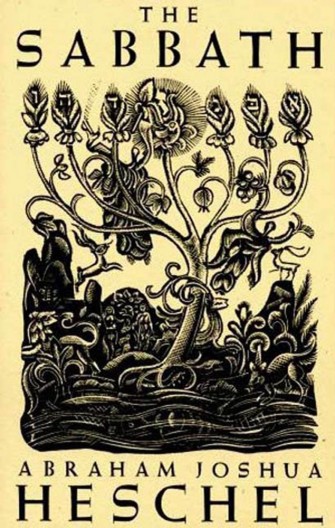 [First posted 2015, revisiting every year to remember the only commandment in the decalogue that says “REMEMBER” that many have ignored, forgotten, changed, or simply could not care less about, much less bother with.
[First posted 2015, revisiting every year to remember the only commandment in the decalogue that says “REMEMBER” that many have ignored, forgotten, changed, or simply could not care less about, much less bother with.
Sabbath-keepers who observe the True Sabbath on the 7th day, as in Saturday, are not always able to properly and fully obey the 4th Commandment in the context of a workweek that considers the 1st day as Monday and culminates on Sunday as “church-day” according to the Christian religious calendar. To them, the true Sabbath is an inconvenience, especially if they work 6 days, Monday through Saturday and their rest day is Sunday. However, this article is not about them but about any awakened religious individual, a regular Sunday church-er who discovers that the true Sabbath is not Sunday but Saturday . . . and has to make a decision, the beginning of many adjustments as more truth unravel at each point of one’s quest for the One True God and His true revelation.—Admin1]
————————
As Christians we never questioned Sunday as the “Sabbath,” the seventh day of rest; after all, it was the day Jesus resurrected. He was Lord of the Sabbath who taught that the Sabbath was made for man and not man for the Sabbath. He debated with the Jewish religious leaders about the burdens they placed on people because of their excessive fencing of the commandments to protect against the slightest violation. As a Torah-observant Jew, Jesus would have taught the importance of sanctifying the Sabbath as well as the whole concept of rest in biblical symbolism.
It is ironic that Sunday-observance resulted from Jesus’ having resurrected on a Sunday, according to tradition. As taught, he finished his work of salvation by suffering, shedding blood by crucifixion, and releasing his spirit on Good Friday; then resting in the grave on Black Saturday [in keeping with Shabbat!], then leaving an empty tomb with his resurrected body to show himself to his disciples on Sunday. Had he known the result would be a complete shift from Saturday to Sunday, if he was truly God in the person of the Son, he should have known better that his church would misconstrue the day he chose to return from the dead.
The fact is most people are clueless when the the real original Sabbath occurs. The common thinking is — Monday is the first day of the week and the week culminates on Sunday, the official day-off. Fortunately, some Christian sects got it right —the Seventh Day Adventists and the Jehovah Witnesses — but unfortunately as a result of Saturday-Sabbath plus a few other beliefs that deviated from the mainstream Christianity belief system, these two ended up in the category of “cults.” Messianics, being conversant with Old Testament law, followed suit and ended up also being stereotyped as “cultic.” Imagine, three sects which have recognized the original day on which the Creator Himself rested on creation week and adjusted their belief system—-are the ones regarded as falling short of qualifying as fully Christian like the Sunday-keepers.
The Roman political-religious power that went anti-semitic in the first three centuries of Anno Domini left its influence in our management of time, among other areas. That persecuting idolatrous Roman power through its emperor left its unmistakable fingerprints all over what eventually became a major world religion. SUN-day is only one of those unfortunate shifts from the original biblical faith. And yet the Sabbath is not just a matter of which day to rest, or go to “church” . . . .discover its essence in the book recommended here.
————————————————————————
Sinaites were first introduced to the writings of Abraham Joshua Heschel in a thin ornately illustrated pamphlet-size book titled The SABBATH.
This book by Heschel, so beautifully written, returns the Sabbath where the Creator of Time originally placed it. One cannot read it without making some adjustments in life. The Sabbath is another “inconvenient truth” in a Sunday-system on which the whole world operates, except in Israel and among the Jewish people.
Here are some excerpts to encourage all to get a copy of this book that should be in everyone’s personal library:
Prologue: Architecture of Time
There is a realm of time where the goal is not to have but to be, not to own but to give, not to control but to share, not to subdue but to be in accord. Life goes wrong when the control of space, the acquisition of things of space, becomes our sole concern. . . . Let us not forget that it is not a thing that lends significance to a moment; it is the moment that lends significance to things.
. . . . The Bible is more concerned with time than with space. It sees the world in the dimension of time. It pays more attention to generations, to events, than to countries, to things; it is more concerned with history than geography. To understand the teaching of the Bible, one must accept its premise that time has a meaning for life which is at least equal to that of space; that time has a significance and sovereignty of its own.
. . . . The God of Israel was the God of events: the Redeemer from slavery, the Revealer of the Torah, manifesting Himself in events of history rather than in things or places. Thus, the faith in the unembodied, in the unimaginable was born.
. . . . The bible senses the diversified character of time. There are no two hours alike. Every hour is unique and the only one given at the moment, exclusive and endlessly precious. . . . The Sabbaths are our great cathedrals . . . . it seems as if to the Bible it is holiness in time, the Sabbath, which comes first. . . . The sanctity of time came first, the sanctity of man came second, and the sanctity of space last. Time was hallowed by God . . .
The meaning of the Sabbath is to celebrate time rather than space. Six days a week we live under the tyranny of things of space; on the Sabbath we try to become attuned to holiness in time. It is a day on which we are called upon to share in what is eternal in time, to turn from the results of creation to the mystery of creation; from the world of creation to the creation of the world.
I. A Palace in Time – . . . . on the Sabbath we especially care for the seed of eternity planted in the soul. The world has our hands, but our soul belongs to Someone Else. Six days a week we seek to dominate the world, on the seventh day we try to dominate the self.
II. Beyond Civilization . . . . Man’s royal privilege to conquer nature is suspended on the seventh day . . . . The Sabbath itself is a sanctuary which we build, a sanctuary in time.
III. The Splendor of Space . . . . The ancient man was inclined to believe that monuments will last forever. It was, therefore, fit to bestow the most precious epithet on Rome and to call it: the Eternal City. The State became an object of worship, a divinity; and the Emperor embodied its divinity as he embodied its sovereignty. . . . . The world is transitory, but that by which the world was created—the word of God—is everlasting. Eternity is attained by dedicating one’s life to the word of God, to the study of Torah.
IV. Only Heaven and Nothing Else? . . . . The world this side of heaven is worth working in.
V. “Thou Art One” . . . . The Sabbath is meaningful to man and is meaningful to God. It stands in a relationship to both, and is a sign of the covenant entered into by both. What is the sign? God has sanctified the day, and man must again and again sanctify the day, illumine the day with the light of his soul. The Sabbath is holy by the grace of God, and is still in need of all the holiness which man may lend to it.
VI. The Presence of a Day . . . . What is it that these epithets are trying to celebrate? It is time, of all phenomena the least tangible, the least material. When we celebrate the Sabbath we adore precisely something we do not see.
VII. Eternity Utters a Day . . . . When all work is brought to a standstill, the candles are lit. Just as creation began with the word, “Let there be light!” so does the celebration of creation begin with the kindling of lights. It is the woman who ushers in the joy and sets up the most exquisite symbol, light, to dominate the atmosphere of the home. And the world becomes a place of rest . . . the Sabbath sends out its presence over the fields, into our homes, into our hearts. It is a moment of resurrection of the dormant spirit in our souls.
VIII. Intuitions of Eternity . . . . The Sabbath is not holy by the grace of man. It was God who sanctified the seventh day.
IX. Holiness in Time . . . . The emphasis on time is a predominant feature of prophetic thinking. “The day of the Lord” is more important to the prophets than “the house of the Lord.”
X. Thou Shalt Covet . . . .a form of longing for the eternal Sabbath all the days of our lives . . . seeks to displace the coveting of things in space for coveting the things in time, teaching man to covet the seventh day all days of the week.
Epilogue . . . . Our world is a world of space moving through time—from the Beginning to the End of Days. . . . Things perish within time; time itself does not change. . . . it is not time that dies; it is the human body which dies in time. . . . Time is man’s greatest challenge. . . . Time, however, is beyond our reach, beyond our power. It is both near and far, intrinsic to all experience and transcending all experience. It belongs exclusively to God. . . . On the Sabbath it is given us to share in the blessings that is in the heart of time.
Get your copy of AJHeschel’s The Sabbath, a MUST HAVE forTorah-observant believers in YHWH.



